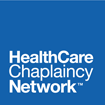What We Do Matters: Continuous Quality Improvement within Chaplaincy and Health Care
Course Author: The Rev. George Handzo, BCC, CSSBB
This module, What We Do Matters: Continuous Quality Improvement within Chaplaincy and Health Care, is designed to enable learners to be a full participant in CQI processes and to establish and sustain a CQI program for a chaplaincy or spiritual care service using Lean and Six Sigma. Participants will learn the basic language to recognize CQI’s underlying assumptions, language, and processes. The module will teach assumptions and language that is pretty much universal to all CQI systems and the language particular to Lean Six Sigma which is the most widely used system. Participants will learn how to set up and run simple Lean or Six Sigma projects and be able to avoid the most common mistakes in this process. Examples of hospital practice will be provided.
By the end of this course the learner will be able to:
- Describe the theory, concepts, and barriers to continuous quality improvement in chaplaincy care and why CQI is both a necessity and an imperative.
- Identify the PDCA, Lean, and Six Sigma approaches to CQI and the major tools used in each.
- Demonstrate how to define, measure, analyze, improve and control chaplaincy care processes and outcomes.
- Formulate ways in which to utilize CQI data to refine chaplaincy specific and the broader spiritual care programs and services.
Course Outline
- Introduction
- US Health Care Trends – Volume to Value
- Establishing Value for anything that is Done
- The Theological Case for Quality Improvement
- Getting to Continuous Quality Improvement
- Plan-Do-Check-Act (PDCA)
- Lean Six Sigma
- SMART Goals
- Assumptions and Barriers
- Waste
- Literature Review and Training
- Steps in a CQI Project
- Rapid Improvement Project
- What a Comprehensive Chaplaincy CQI Effort Looks Like
- Summary
- Basic Texts
- References
Number of Continuing Education Hours: 25
Credit towards Board Certification Requirements: 1
Aligns with the following Quality Indicators in What is Quality Spiritual Care in Health Care and How Do You Measure It? (HCCN. 2016).
- Structural Indicator 1.D. Professional education and development programs in spiritual care are provided for all disciplines on the team to improve their provision of generalist spiritual care.
- Structural Indicator 1.E. Spiritual care quality measures are reported regularly as part of the organization’s overall quality program and are used to improve practice.
- Process Indicator 2.A. Specialist spiritual care is made available within a time frame appropriate to the nature of the referral.
- Process Indicator 2.C. An assessment of religious, spiritual, and existential concerns using a structured instrument is developed and documented, and the information obtained from the assessment is integrated into the overall care plan.

